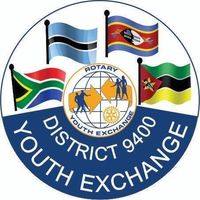Here's Edwin Cameron in an academic role. He became Vice Chancellor of the University of Stellenbosch
Cameron was born in Pretoria. His father was imprisoned for car theft and his mother did not have the means to support him. He therefore spent much of his childhood in an orphanage in Queenstown. His elder sister was killed when Cameron was seven.
Cameron won a scholarship to attend Pretoria Boys High School and reinvented himself, he says, "in the guise of a clever schoolboy".[ Thereafter he went to Stellenbosch University, studying Latin and classics. After this he attended Oxford University as a Rhodes Scholar. There he switched to law and earned a BA in Jurisprudence and the Bachelor of Civil Law, winning the Vinerian Scholarship. When he returned to South Africa he completed an LLB at the University of South Africa.
Cameron practised at the Johannesburg Bar from 1983 to 1994. From 1986 he was a human rights lawyer at Wits's Centre for Applied Legal Studies, where in 1989 he was awarded a personal professorship in law. Cameron's practice included labour and employment law; defence of African National Congress fighters charged with treason; conscientious and religious objection; land tenure and forced removals; and gay and lesbian equality.
In October 1994, President Nelson Mandela appointed Cameron as an acting judge of the High Court to chair a commission of inquiry into illegal arms sales by Armscor, operating as the sales arm of the SANDF, to Yemen. Cameron's report was described as a "hard-hitting" critique of Armscor's conduct, but was quickly eclipsed by myriad other allegations about the South African government's illegal arms trades.
Cameron was instead appointed to the Supreme Court of Appeal (at the same time as Mahomed Navsa and Robert Nugent), where he served for eight years.
On 31 December 2008 President Kgalema Motlanthe appointed Cameron to the Constitutional Court, taking effect from 1 January 2009. He was considered a crucial member of the Court's progressive wing.
Cameron has been openly gay since the early 1980s. He addressed the crowd in the first pride parade in South Africa held in Johannesburg on 13 October 1990. Thereafter he oversaw the gay and lesbian movement's submissions to the drafters of the South African Constitution and was instrumental in securing the inclusion of an express prohibition on discrimination on the basis of sexual orientation.
From 1988 Cameron advised the National Union of Mineworkers on HIV/AIDS, and helped draft and negotiate the industry's first comprehensive AIDS agreement with the Chamber of Mines. While at the Centre for Applied Legal Studies, he co-drafted the Charter of Rights on AIDS and HIV, co-founded the AIDS Consortium (a national affiliation of non-governmental organisations working in AIDS), which he chaired for its first three years, and founded and was the first director of the AIDS Law Project.
Cameron had himself contracted HIV in the 1980s and became extremely ill with AIDS when working as a High Court judge. His salary allowed him to afford anti-retroviral treatment, which saved his life. Cameron's realisation that he owed his life to his relative wealth caused him to become a prominent HIV/AIDS activist in post-apartheid South Africa, urging its government to provide treatment to all. He has strongly criticised President Thabo Mbeki's AIDS-denialist policies. Cameron was the first, and remains the only, senior South African official to state publicly that he is living with HIV/AIDS.
Last Week
District Governor George Senosha's official visit to the club began with visits to three of our projects; Bethany Home for Abused Women and Children, Gerald Fitzpatrick Home and Rest-A-While. These projects are close enough to show him the three. What we have achieved at the first two in terms of solar power and water when both electricity and water supply are erratic. Rest-A-While is a new project and what we hope to be able to achieve there. He was accompanied by his aide, Grace van Zyl.
He met with the Board and was particularly interested in our approach to succession planning with Presidents in place for two years ahead of this year and our approach to membership and Foundation.
Subsequently he met with the club over dinner and it was a pleasure to have him. Instead of our usual International section I will add photographs of his visit.
Next Week - Quo Vadis Knights Pendragon?
This a special meeting for committees and a general assembly to discuss how to alleviate the weaknesses in the SWOT Analysis presented by President Andrew two weeks ago.
DG George Senosha.s Visit


















